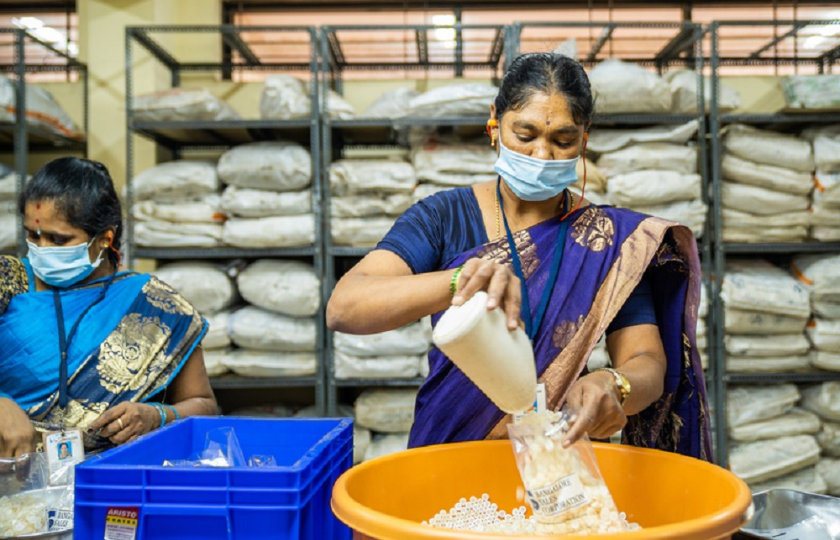In India, 62 million tonnes of waste is generated annually, with only 15 per cent of the waste processed and treated. The invisible heroes behind recycling are the estimated 4 million informal waste pickers who make their livelihoods by collecting, cleaning, and segregation waste.
Informal waste pickers play a crucial role in waste management and a circular economy. Unfortunately, they have been shunned, marginalised, and made invisible in the community.
Today, Bengaluru’s waste pickers are helping global brand H&M achieve circularity with their collected plastic waste now being used as buttons on garments sold worldwide. The buttons are traceable from the source of waste, together with the names of the workers, salaries, social security, and working conditions at the collection centre.
The plastic waste collected by “informal” waste pickers is now becoming a valued resource in the fashion and textile industry, providing better income and recognition as an integral part of the circular economy.
In 2020, the H&M foundation established Saamuha Shakti, an initiative that aims to equip waste collectors to bring themselves out of poverty through a holistic collective of organisations.
Eight local partners are working together to provide waste pickers with the critical needs they have identified, including safe working conditions, access to social services, good education, water and sanitation, innovations in waste management streams, and alternative jobs.
The collaborative is now a business partner with social enterprise Hasiru Dala Innovations, placing orders for billions partially made from recycled PET bottles supplied by waste pickers in Bengaluru. With the fashion and textile sector transitioning from linear business models to circular, sustainable materials are in demand, and recycled plastic plays a vital role in supporting a regenerative industry.
“Waste management and material recycling are fundamental components of a circular economy, but for it to be truly sustainable, it needs to include the very group of people that upholds this value chain in India – the informal waste picker community,” shares Maria Bystedt, strategy lead at H&M Foundation.
Since its launch, 20,000 Bengalaru waste pickers, including their families, have worked with the initiative.



